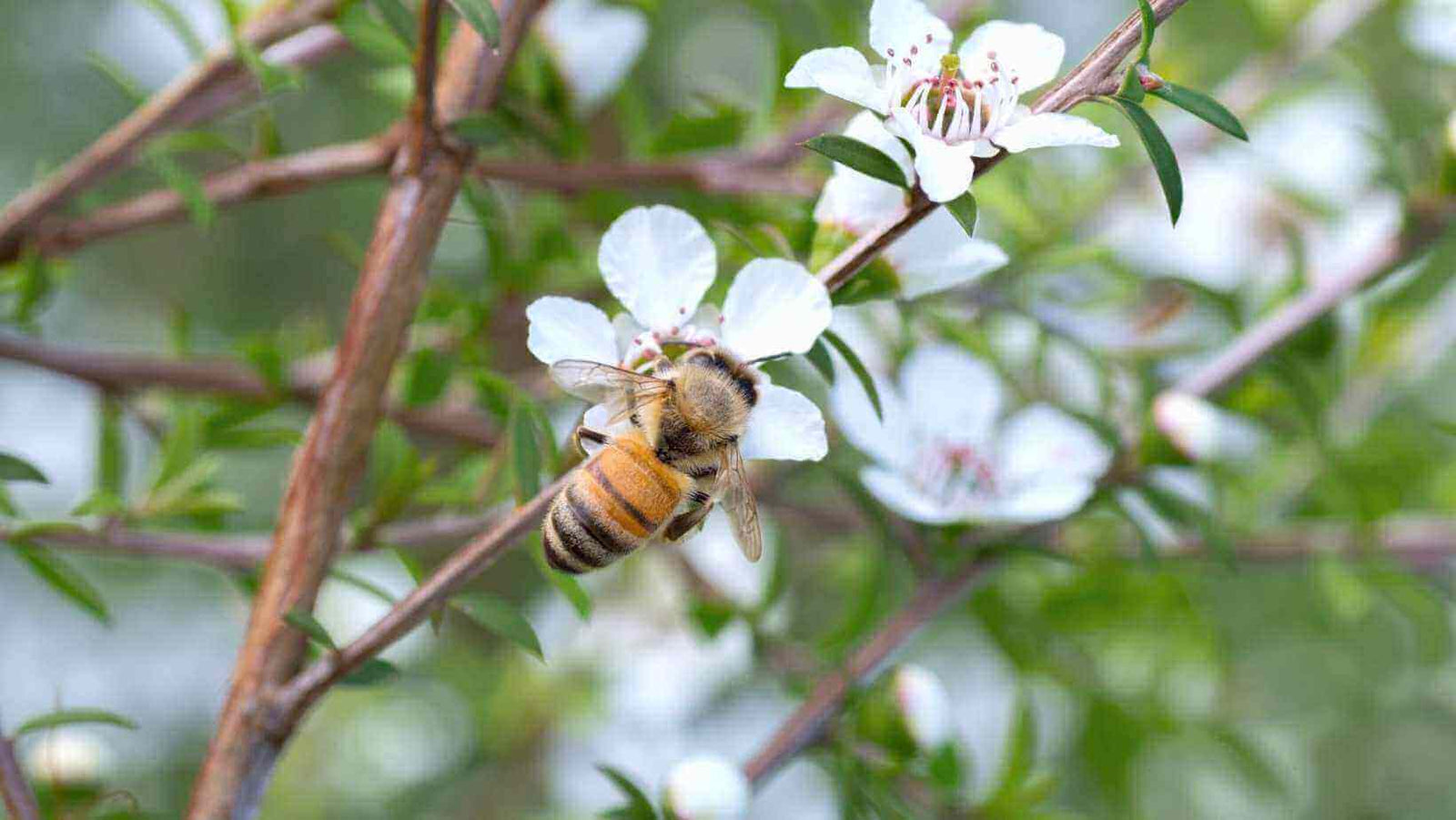Which honey is better: Regular or Manuka honey?

When you're selecting honey - not just for its sweetness - but also for its potential health benefits, one question naturally comes up: which honey is better - regular or Manuka honey? While both honey types provide natural health benefits, the differences between them are worth considering - especially if you're after more than just a spread for your toast.
What makes Manuka honey unique?
Manuka honey is produced by bees that pollinate the Leptospermum scoparium plant, native to Australia and New Zealand. This variety is prized for its high concentration of methylglyoxal (MGO), the compound that is responsible for its powerful antibacterial properties.
Manuka honey is rigorously tested and graded for quality. In Australia, a leading grading system is the Unique Leptospermum Factor (ULF), which measures key compounds such as MGO, leptosperin, and DHA. These markers confirm the honey’s authenticity, strength, and bioactive properties.

Here at Biosota, every batch of our Manuka honey is independently lab-tested and certified for MGO potency, purity and quality - ensuring it delivers the medicinal strength and therapeutic effectiveness you can trust.
How does table honey compare?
Regular honey, whether it's clover, eucalyptus, or wildflower, is still a great pantry staple. It contains natural antioxidants, enzymes, and has mild antimicrobial properties. It's also widely available.
However, most commercial honeys are pasteurised and heavily filtered; processes that can diminish their beneficial compounds. While raw table honey retains more of its natural goodness, it still lacks the unique bioactive compounds found in authentic Manuka honey.
Which honey is better for your health?
This is where the real distinction lies. While all honey has natural antibacterial properties, Manuka’s high MGO content gives it superior medicinal value. The higher the MGO, the stronger its healing and therapeutic benefits.
Gut health support
Manuka honey has been shown to help maintain healthy gut flora and soothe digestive issues like gastritis and acid reflux. Its natural prebiotic properties can support the growth of beneficial gut bacteria — something ordinary honey doesn’t offer to the same degree.
Cold and flu relief
With its antimicrobial power, Manuka honey can help ease sore throats, reduce cough frequency, and even combat secondary bacterial infections that can follow an upper respiratory infection. Its smooth texture also coats the throat, providing natural relief.

Cancer recovery support
While it’s not a treatment, Manuka honey has been researched for its role in supporting cancer recovery by promoting tissue healing, reducing inflammation, and soothing mucositis - a common side effect of chemotherapy and radiation.
A 2024 study has also revealed the potential for using Manuka honey to help prevent and treat breast cancer. The research found that Manuka honey slowed eostrogen receptor-positive breast cancer growth by 84% in mice - without harming healthy cells. The results suggest it could complement existing treatments as a natural, low-toxicity option.
Immunity boosting
Thanks to its rich antioxidant profile and antibacterial strength, Manuka honey can help bolster the immune system and fend off infections, which is becoming increasingly important in today's health-conscious world.
Wound healing and skin health
Used in hospitals, clinics and at home, medical-grade Manuka honey is applied to wounds and burns to speed up healing, fight infection, and reduce scarring. Ordinary honey simply doesn’t carry the same verified potency.
When it comes to targeted wellness support, Manuka honey is the superior choice over regular honey. With decades of scientific research backing its benefits, it offers much more than just a sweet treat - it is nature’s multi-purpose healer.
Taste, texture and use
Ordinary honey tends to be lighter in flavour and runnier in consistency—great for general cooking and sweetening. Manuka honey, on the other hand, is richer and more robust, with a thicker, more luxurious texture.
Biosota’s Manuka honey is harvested from hives sited in various pristine Eastern Australian forests, capturing the unique flavours of that area. Like fine wine, our wild honey has a distinct taste and delicious flavour with no two honeys the same.

While both honeys are delicious, the choice depends on your intended use. If you’re after a health boost or natural remedy, Manuka honey is worth the investment.
So, which honey is better?
If you’re looking for natural support for immunity, digestion, wound healing and general wellbeing, Manuka honey is the better choice. Its scientifically backed medicinal benefits, purity, and quality set it apart from ordinary honey.
Ready to experience the benefits of Manuka honey?
Discover our full range of premium, Australian Manuka honey, sustainably harvested, independently tested, and packed with natural bioactive properties. Shop our Manuka honey collection here.


Wow so fun absolutely good information
I searched a lot for this information.
Thank you for sharing. 🌹
I use it to mask my face and its great
I healed my Mom’s MRSA with Manuka honey MGO 550 and her pressure sore with Manuka honey MGO 400.
Thanks. I use this to heal open wounds on my dogs!! It’s great!
Leave a comment